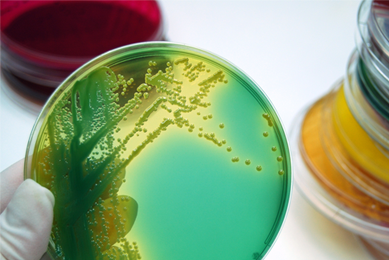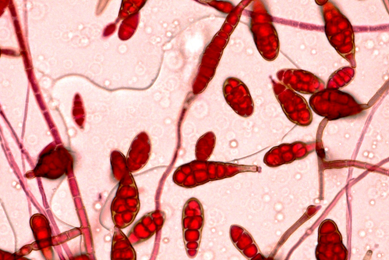Determine the microbial bioburden of your nonsterile product
Many products such as cosmetics and personal care items are not required to be sterile when they are released to the market. To ensure the quality and safety of these products, manufacturers must evaluate how many microorganisms are present in the product to confirm that it complies with an established specification for microbial quality.
To evaluate the number of viable microbes in a sample, product manufacturers perform Microbial Enumeration Tests as defined in United States Pharmacopeia <61> (harmonized with European Pharmacopoeia 2.6.12 and Japanese Pharmacopoeia 4.05 I). USP <61> describes the methodology and test strains for evaluating the total count of aerobic bacteria and fungi present within a sample. The five challenge strains listed are those required for the test. These microorganisms must be managed using seed-lot culture maintenance techniques to ensure that the viable cultures are no more than five passages removed from the original culture.
USP <61> lists these organisms for testing
Conveniently order these strains as a panel
Why ATCC is a recommended source for quality control strains
ATCC is a trusted scientific resource that is committed to raising the standards for credibility in the life sciences. As an ISO 9001 certified and ISO/IEC 17025 accredited organization, you can trust that our microbial cultures are carefully authenticated, managed, and preserved using protocols that maintain the genotype and phenotype. At the heart of our preservation protocols is the seed stock concept. We utilize this methodology to ensure that our preserved cultures remain as close as possible to the original culture. This preservation method maintains these materials in a manner that permits reproducibility of results and ensures that our strains are minimally passaged, thus reducing the likelihood of contamination, genetic drift, mutation, and phenotypic variation.
Our microbial strains are authenticated and fully characterized using a polyphasic approach that elucidates both phenotypic and genotypic traits. Our comprehensive authentication process includes a variety of analyses such as morphology characterization, biochemical testing, MALDI-TOF MS, and whole-genome sequencing. What's more, in an effort to ensure the best quality for our authentication procedures, we are constantly evaluating and adopting novel methods and instrumentation that demonstrate improved levels of sensitivity and specificity.
Explore our related resources
 Culture guide
Culture guide
Bacteriology Culture Guide
Get expert tips on culturing bacteria including essential information about bacterial growth, propagation, preservation, and application.
More Culture guide
Culture guide
Mycology Culture Guide
Get a detailed mycology guide on the growth, handling, propagation, preservation, and application of yeasts and filamentous fungi.
More Technical document
Technical document
Reference Strains: How Many Passages are Too Many?
This technical document will attempt to clear up some of the confusion about passage and microbial culture maintenance and provide some definitions and recommendations.
More